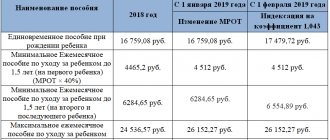Features of obtaining a mortgage in a civil marriage
The absence of a marriage stamp in a passport is currently not a key factor for banks. What matters most to the lender is whether the client is solvent or not. Therefore, people living together can receive a housing loan, but cannot receive preferential conditions and state subsidies.
One such form of support is the Young Family program. One of the main conditions for participation in it is that the couple is in a registered marriage.
Another disadvantage of buying an apartment with borrowed funds in a civil marriage is that upon separation, the property will go to the person in whose name it is registered. This means that the purchased apartment will remain with the spouse with whom the bank entered into a mortgage agreement.
To insure yourself against loss of investments, you must save all payment documents. For example, if the housing is registered in the name of a woman, then if there are receipts for making mortgage payments, the man, by court decision, can receive a share in the apartment.
How is a mortgage divided between common-law spouses?
Everything here is not simple and not as clear as in an official marriage. The fact of cohabitation and joint participation in loan repayment must be proven. If it works out, the apartment will be divided according to the shares registered in Rosreestr. Judicial practice knows many similar processes and in each of them the conflict is resolved differently. Usually, in the event of termination of cohabitation, common-law spouses manage to solve the problem of dividing the common debt in one of the following ways:
- The spouses reach an agreement and continue to repay the loan to the bank as before. After fulfilling the obligations, the apartment can be sold and the money divided in proportion to the shares in the common property;
- The spouse who does not agree to fulfill the obligations renounces his share in the property. In this case, with the approval of the creditor, the share can be transferred to one of the spouses, who will repay the loan. The second has the right to claim in court part of the personal funds spent on repaying the mortgage, provided that he can prove the ownership of this or that amount. Otherwise, the court will recognize that the payments, including the costs of the down payment, were made from the general budget and will refuse the applicant’s request to compensate for the expenses he incurred;
- One of the spouses refuses to pay, but does not abandon the property. Resolving such a situation is extremely difficult. It may happen that a conscientious spouse will pay the entire loan amount, and in return will receive a claim for the division of joint property, so it is preferable to resolve this conflict by mutual agreement of the parties.
If both spouses, to spite each other, stop fulfilling their obligations, the bank has the right to foreclose on the collateral. The apartment will be sold, and the borrowers will receive part of the funds only if there are any remaining after repayment of the debt and accrued interest. As a result, both may be left with nothing.
And one more sad point concerns the degree of trust in each other. If the loan, as well as the property, is registered in the name of one of the spouses, the other may remain out of work, since it is very difficult to prove the fact of joint repayment of the loan.
Loan options
Based on Federal Law No. 102, financial organizations offer two ways to obtain a housing loan for unregistered couples:
- Registration of housing for one spouse , who will be the owner. A second person can act as a guarantor in the transaction. The disadvantage of this solution is that the guarantor’s rights to the apartment will be very difficult to justify if the couple separates. You can avoid such difficulties by dividing your mortgage payments in half and paying them with different payment documents indicating the payer. By retaining all payment documents in court, you will be able to defend your right to the purchased home.
- Registration of real estate for both cohabitants with equal responsibility for the integrity of the housing and equal property rights. Rights and obligations under the contract will also be equal, and housing in the event of separation can be divided into shares.
Is it possible to minimize risks?
Despite the firm belief that a stamp in a passport is not the most important thing, any officially unregistered couple is interested in the question: will banks approve a mortgage and how to take out a loan without fearing for their future?
Of course, not every credit institution is ready to take a risk and provide a loan to people in a civil marriage, however, today this is possible.
For example, there is a high probability of approval of a mortgage loan in the following banks:
| Credit organisation | Bid | Down payment percentage | Loan amount |
| Sberbank | from 9.1% | from 15% | no more than 30 million rubles |
| VTB | from 9.2% | from 10% | no more than 60 million rubles |
| Gazprombank | from 10.2% | 10% | no more than 54,500,000 rubles |
| Rosselkhozbank | from 9.2% | 15% | no more than 20 million rubles |
| Alfa-Bank (finished apartments) | from 9.59% | from 15% | no more than 50 million rubles |
It might be interesting!
How many times in your life can you take out a mortgage for an apartment and which bank is better?
If a suitable option is found, how to protect yourself when applying for a mortgage loan? Since you don’t want to register your marriage, experts suggest the following ways to reduce possible risks:
- Agree with the bank and your spouse about registering the apartment as common shared ownership;
- Determine shares based on the degree of participation of each party. For this purpose, before signing a loan agreement, it is recommended to conclude a loan agreement, indicating in it the amount of funds transferred to repay the down payment;
- When repaying a loan, keep payment receipts that indicate the name of the payer, especially if the property is registered to one spouse;
- It is more profitable for couples with children to take out a mortgage on the certificate holder in order to use his funds to pay off the down payment (relevant for women). In this case, the husband must keep all payment documents.
And in conclusion, a simple but valuable piece of advice. If you register your relationship with the Registry Office, your chances of getting a loan to buy your dream apartment increase significantly.
Conditions for obtaining a mortgage
Purchasing your own home is the most common purpose of a mortgage loan, including among couples in civil relationships. For such unregistered spouses, banks sometimes immediately offer to register the purchased housing as joint ownership, and sometimes as shared ownership.
It is important for a financial organization that in the event of conflicts in relationships and separation, this does not affect payments and the proceedings between cohabitants have the least impact on debt obligations. Otherwise, the mortgage is issued on standard terms and is issued by most banks.
The couple will need to provide:
- initial payment;
- documents confirming the solvency of both parties to the transaction or one of them;
- other necessary certificates, confirmations and papers.
The sanctions applied by the bank are also standard: the last resort is the eviction of debtors from the mortgaged property. The bank may decide to divide the debt between the spouses or resolve this issue in another way. For banks, such situations are unprofitable, and therefore the lender always tries to protect itself from such force majeure.
Difficulties in purchasing real estate by unmarried persons
The main differences in the mutual rights and obligations of spouses who have had a wedding and persons living in a civil marriage are as follows:
- Spouses, as parents, bear equal responsibility for the health and development of their children, including after divorce. Both spouses must provide the child with decent housing, and he, in turn, has the right to claim it.
- Spouses bear mutual responsibility and are obliged to provide financial and other support to each other. For example, a husband is obliged to support his wife during pregnancy and raising a child up to one year. In a civil marriage, the spouse does not have such an obligation - this is a minus.
- If the spouses intend to divorce, after the dissolution of the marriage they acquire the same rights to jointly acquired property, unless otherwise stated in the marriage contract. This provision of law does not apply to relations between persons living in a civil marriage.
- After the death of the legal spouse, the second acquires the right to inherit his property (including real estate) and becomes the heir of the first priority. A man and woman living in a civil marriage do not have the right to inherit from each other. An exception is when the surviving spouse proves that the deceased was dependent on him.
To ensure that one of the common-law spouses is not left without rights to the purchased home during separation, you need to know how to properly process its purchase. The problem is that if Russian family law does not regulate civil marriage, the principle of common joint property does not apply to it.
Therefore, the only correct way to purchase housing is to register shared ownership (for example, take out a mortgage). A man and a woman have the right to determine any ratio of shares. But basically everyone receives a share equal to the cash investment in the purchase of real estate.
By establishing a shared ownership regime, cohabitants are given the right to preferential acquisition of each other's shares: if one of them wants to sell his part, he must first notify the second owner about this in the prescribed manner and offer to buy it back. If the repurchase is refused, the share can be sold to any third party.
If an apartment is registered in the name of only one owner, he exclusively has the right to it, even when both informal spouses invested their funds in it. If a couple separates, the citizen for whom the housing was not registered will receive nothing, since he is not indicated in the title documents.
You can try to claim your rightful part by submitting documents confirming the investment of your own funds for the purchase along with the statement of claim.
Advantages and disadvantages
Civil relations between partners have a greater impact on the security of mortgages for borrowers than for banks.
Unregistered couples have advantages:
- the terms of the loan are the same as for registered spouses;
- you can get a loan from most banks, it is only important to confirm your income level;
- after the loan is repaid, the apartment becomes shared ownership: if the agreement was drawn up correctly, everyone will receive ownership of their part of the apartment in proportion to the money paid.
Disadvantages of not having a marriage registration stamp:
- there is no opportunity to take advantage of government support;
- the risk of losing your home and the money invested in it if the relationship breaks down.
Mortgage options for common-law spouses
So, despite the limited availability of mortgage lending programs, it is possible to take out a loan to purchase housing while in a common-law marriage. Now let's figure out how to do this. And here the following options are available for spouses to choose from:
- Conclude an agreement with the spouse whose income is higher or with the one who has the opportunity to take advantage of government support, for example, take out a mortgage with maternity capital. The latter option is possible if the marriage is registered, however, no one has canceled the right of single mothers to receive a mortgage loan using state support, because not all common-law husbands agree to establish paternity. But then the spouse will not be able to participate in the acquisition of property rights to housing.
- Enter into an agreement under which obligations are assigned to both spouses. In this case, one will act as the main borrower, and the second as a co-borrower. In this case, the collateral property is not registered in the sole ownership of one of the spouses, but is registered as shared property.
Possible risks: how to protect yourself
For people living in an unofficial marriage, there is one risk when purchasing a home together with a mortgage: if the relationship ends, they will lose both the property and the funds contributed to its purchase.
For each person in such a couple, the relevant question is how to protect themselves from such trouble. There is no point in wasting effort on insuring yourself against such losses.
There are several ways to minimize risk:
- preliminary, before applying for a housing loan, enter into a loan contract with each other indicating the amount that each will invest in the purchase of an apartment;
- When paying monthly payments, indicate your full name in the payer field and save payment documents.
If you follow these recommendations, upon termination of the relationship, the likelihood of obtaining in court a share in the apartment corresponding to the money spent on it increases.
Required documents
The very first document that is submitted when applying for a home loan is an application for the issuance of borrowed funds. For couples who are not officially married, it can be compiled in two forms. The first option is one application from two persons, if cohabitants are co-investors. The second is an application from one spouse, if the second will only be a guarantor for the transaction.
The application must contain:
- Full name of the borrower or borrowers;
- desired loan amount;
- planned repayment period;
- family income size;
- other information that the bank may request.
The application review period is approximately three business days.
If the bank has approved the mortgage, you will need to provide a package of documents, the requirements for which differ from company to company.
The mandatory list includes:
- passports and/or their full copy;
- certificate in form 2-NDFL;
- a copy of the work record book certified by the employer;
- documentation for the purchased property.
Examples of bank lending conditions
Loan programs at different banks contain slightly different conditions. Sberbank and VTB 24 were among the first to issue mortgages to civil couples.
Below are options in several organizations. The terms of the loan depend on the purpose of the loan, so the indicated values are approximate.
Sberbank
Mortgages for unregistered couples are issued on general terms.
Down payment amount: from 20% Minimum loan interest: 11.4% Maximum repayment period: 30 years Loan amount: from 300 thousand rubles.
VTB 24
Down payment amount: from 20% Minimum loan interest: 14% Maximum repayment period: 30 years Loan amount: from 500 thousand rubles to 30 million rubles.
Raiffeisenbank
Down payment amount: from 15% Minimum loan interest: 14.7% Maximum repayment period: 25 years Loan amount: from 800 thousand rubles to 30 million rubles.
Alfa Bank
Down payment amount: from 30% Minimum loan interest: 17.3% Maximum repayment period: 25 years, minimum - 5 years. Loan amount: up to 30 million rubles.
Promsvyazbank
Down payment amount: from 20% Minimum loan interest: 11.4% Maximum repayment period: 25 years, minimum - 3 years. Loan amount: up to 30 million rubles.
Bank "Revival
Down payment amount: from 20% Minimum loan interest: 13.75% Maximum repayment period: 30 years Loan amount: up to 15 million rubles.
About a quarter of married couples do not register their relationship with each other at the registry office and live in a civil marriage. This form of relationship does not interfere with having children and purchasing housing on credit.
Most banks are ready to issue a loan to such a couple, provided that the spouses confirm their reliability and ability to repay the debt on time.
How is mortgaged property divided?
Problems with dividing a mortgaged apartment in a civil marriage arise when a couple decides to separate before the end of their loan obligations. In this case, there are several options for the development of events.
If the housing loan is issued for two people:
- The property is divided according to the shares specified in the agreement;
- The former spouses continue to make contributions, and after the mortgage is closed, they deal with the apartment at their own discretion (sell, rent, donate, etc.);
- The housing loan is reissued to one owner - he will repay the entire remaining amount. Such changes are possible only with the permission of all parties to the agreement. Do banks give unconditional consent to this operation? Unfortunately, a financial institution has the right to refuse a client if he does not have a high level of income or does not meet other important requirements;
- Selling encumbered housing to third parties allows you to pay off the mortgage “in one fell swoop.”
Expert opinion
Evgeniy Belyaev
Legal consultant, financial expert
Ask
Former spouses who were unable to reach a mutual decision can go to court. If the loan is issued to one of the spouses, there should be no problem, because by law he is the only borrower and owner of the property.










